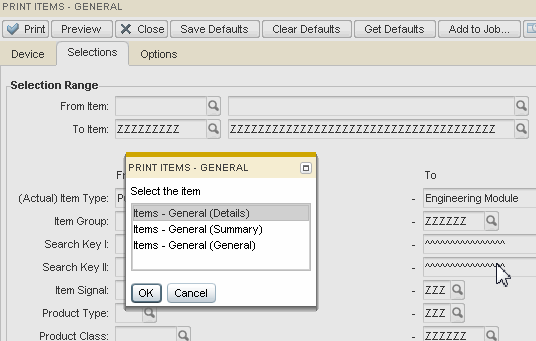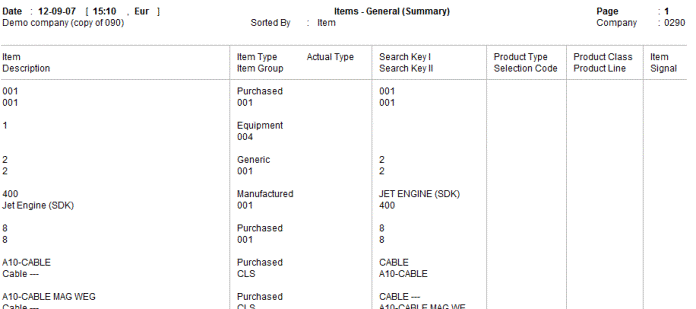ReportsReports are used to show data on the screen, or print it on a printer or other output device. Reports are used in (print) sessions and SQL queries. A session can have multiple reports. When you run a session that has multiple reports, a list of available reports is displayed. An SQL query can have only one report. Ejemplo The Print Items - General (tcibd0401m000) session has multiple reports:
When you click Print in this session, you must select one of these reports.  Print Items - General - report selection When you select the Items - General (Summary) report, this
report is printed:  Items - General (Summary) report Report structure LN reports contain one or more of the following layouts:
The contents and layouts of reports are defined in the data dictionary. In addition, you can link a report script to a report. In a report script, you can program actions that you want to be performed at particular stages of the report execution. For example, you can create a script to perform calculations on the report data or to read records from related tables that are not automatically available to the report. You program report scripts in the same way as you program 4GL program scripts, except that report scripts use different event sections and some special functions. To create reports You can create reports in the Reports (ttadv3530m000) session and in the Report Generator (ttadv3130s100) session. You can start these sessions from the Sessions (ttadv2500m000) session and from the Sessions (ttadv2100s000) session respectively. You can change the report layout in the Report Editor that is part of Herramientas de desarrollo. For details, refer to To create reports. For more information, refer to the following topics in the Web Help:
| |||||||||||||||||||